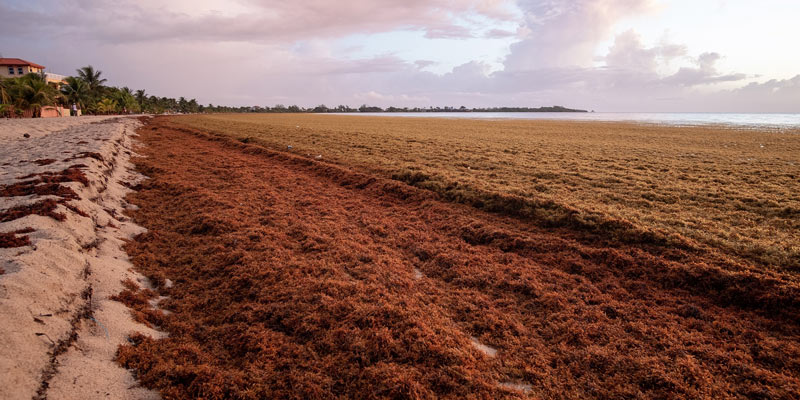
Sargassum Biomass Valorisation
Context
Massive blooms of the pelagic brown algae Sargassum, also known as golden tides, have occurred in the Caribbean, and to a lesser extent, in West Africa, almost every year since 2011. These events have major environmental, health, and economic impacts in the affected countries. A combination of environmental factors, including wind, ocean currents, water temperature, and continental nutrient inputs, has been suggested to explain the recurrence of this phenomenon. Once on the shore, Sargassum is mechanically harvested and disposed of in landfills.
The research
Existing commercial applications of other brown algae species indicate that the pelagic Sargassum biomass could constitute a valuable feedstock for potential valorisation. However, information about the composition of this biomass is scarce and scattered. In this context, we are working with partners in the UK, the Caribbean and West Africa to fill this gap and to explore different avenues to turn this seaweed biomass into benefits for the affected countries.
Contact us
Centre for Novel Agricultural Products
cnap@york.ac.uk
+44 (0)1904 328776
Department of Biology,
University of York,
Wentworth Way,
York
YO10 5DD
Featured researcher

Thierry Tonon
Dr Tonon is interested in algal physiology, enzyme characterization, evolution of metabolic pathways, and on developing biotechnological applications based on algae and/or algal genes.
Contact us
Centre for Novel Agricultural Products
cnap@york.ac.uk
+44 (0)1904 328776
Department of Biology,
University of York,
Wentworth Way,
York
YO10 5DD